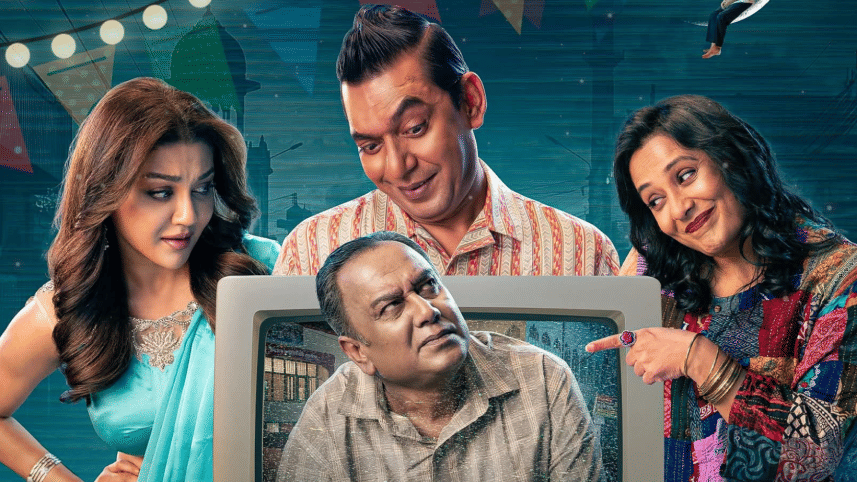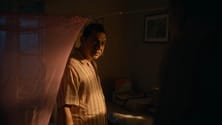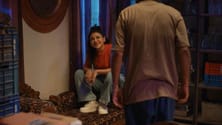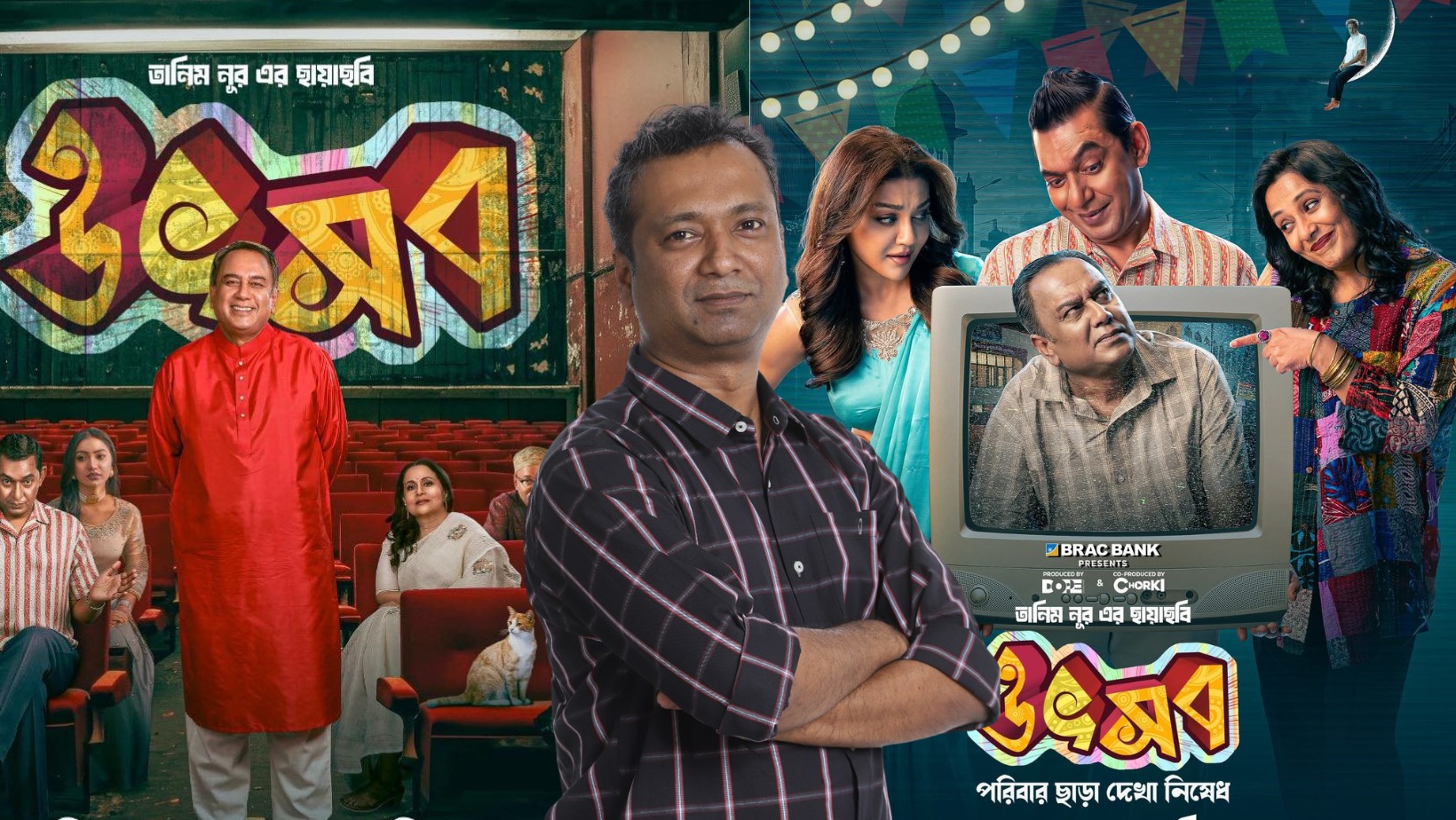‘Utshob’ and the art of tenderness

When was the last time you had a smile plastered across your face throughout the entirety of a film?
In this instance, getting into the cinema hall was an event in itself. Crowds huddled near the elevator to get to Star Cineplex in Shimanto Shambhar, waiting for over an hour just to make it in on time for the films they'd booked. I've rarely seen this kind of eagerness for Eid films, let alone such a scramble for seats. By the time my family and I made it to the screening of "Utshob" by Tanim Noor, the hall was nearly full -- even a full week after its release.

People of all ages and backgrounds had gathered, waiting for something they already sensed would be different -- from the trailer, the posters, the songs. These glimpses alone promised something new, something free from the tropes we have come to expect in our films. They promised joy; and we were desperate for it.
For anyone who grew up reading or watching "A Christmas Carol" by Charles Dickens, "Utshob" is a warm wave of nostalgia. For those raised in 1990s Bangladesh -- whether or not they're familiar with Dickens -- the film offers a loving nod to the dramas and films of that era. And even for viewers with no emotional ties to either Dickens or the 90s, this film still feels like a two-hour-long hug, a very warm one.

The acting was tender and restrained. Zahid Hasan and Shommo Jyoti as the dual versions of Abu Nizar Jahangir (our Eid-time Ebenezer Scrooge), Sadia Ayman and Afsana Mimi as Jesmin, and the delightful trio of Christmas, or in our case, Eid spirits played by Chanchal Chowdhury, Jaya Ahsan, and Aupee Karim (appearing as themselves), were all perfectly cast. None of these characters were overwrought or unnecessarily complex. Writers Ayman Asib Shadhin and Samiul Bhuiyan chose simplicity -- and that was where they struck gold.
Jahangir is a cranky, miserly man -- affectionately hated in his neighbourhood and mockingly called "khaishta [obnoxious] Jahangir". No one really knows what turned him sour, only that he complains about everything and everyone. In contrast, his cousin Mobarak, played by esteemed actor Tariq Anam Khan, was beloved and known for his iconic Chaand Raat gatherings. When Mobarak dies mid-celebration one Chaand raat, it sparks a reckoning in Jahangir that becomes the heart of the story.

Mobarak's ghost visits Jahangir that night, warning him of three spirits who will come. Jahangir brushes it off -- until he's woken again by the sound of "Shada Shada Kala Kala" and greeted by a ghost who has taken the form of Chanchal Chowdhury. What follows is a journey into Jahangir's past, present and future -- into the fractures that shaped his life.
The humour was gentle and well-timed, the moral reflection poignant but never preachy. It shows how even the smallest missed moment -- a decision deferred, a word unsaid -- can alter the course of a life.
The music elevated the experience, with no gaudy item numbers or melodrama -- just well-placed songs that served the story. The inclusion of Artcell's "Dhushor Shomoy" was a stroke of genius for every 2000's teen in the room. It was 'Kaiser'-era Tanim Noor at his best -- evocative, grounded, and intimately nostalgic.

Sunehra Binte Kamal's surprise appearance as Jahangir's long-lost daughter was the final emotional crescendo. One particular moment drew an audible gasp from the audience, followed by collective laughter and an outburst of "baap ka beti! (a father's daughter!)" in unison. It was the kind of audience-film synergy that is hard to forget.
Despite it being 2025, most of our filmmakers believe a specific format needs to be followed when it comes to making a film: a hero, a heroine, a villain, multiple songs, including an "item" one; and nowadays, rape has also become staple.
"Utshob" had none of that. The story itself was the hero, the heroine and all else. And most of all, what it had was heart. A pure and full heart.
As the credits rolled, not a single person left with a dry eye or an empty heart. We all emerged smiling -- strangers who had cried, laughed, and healed together for two short hours.
"Utshob", to me, is not just any "good film", it is profoundly human, and magically so. It felt like sipping on a warm mug of hot chocolate with marshmallows on a cold winter night.
In a cinematic landscape often saturated with noise and spectacle, "Utshob" offered something radical: tenderness.
And in doing so, it reminded us that the best stories are not the loudest ones; but the ones that sit with you long after the lights come on.




 For all latest news, follow The Daily Star's Google News channel.
For all latest news, follow The Daily Star's Google News channel. 
Comments